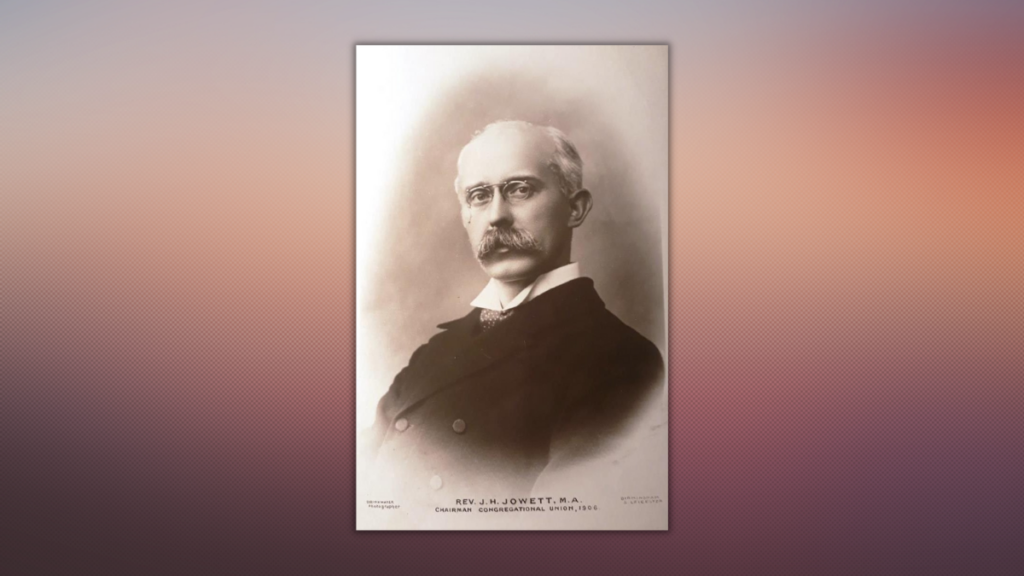One recent Sunday, my wife and I decided not to attend live, on-site church, so we attended church online. Though we did not attend church on-site, we were engaged in church and were an active part of God’s Church that day.
During the COVID-19 pandemic, I was the director of a Baptist association of 100 churches. A key issue was counting church participation. I suggested our churches move from counting attendance to counting engagement.
This did not fit some churches’ convictions about participation.
For others, it was a relief and an innovation to think about engagement as another way of counting attendance.
Counting engagement is a reframing of participation. It acknowledges that church engagement exists through both live presence and online presence.
Consider a change
In our Baptist tradition of counting attendance only through live presence, we have not changed our counting pattern.
Now is the time.

Once we counted active members as people who attended every Sunday, those who when not present brought us a bulletin from the church they attended. Then we lowered the definition of active members to those who attended three Sundays each month — and then two. Some churches finally arrived at a place that any person who attended at least one Sunday each month was considered active.
Questions have also arisen about how to count online worship participants. For example, how do we know if they are really engaged in worship or whether they’ve just clicked into the online service, but are actually doing something else?
One church with a high percentage of empty nesters and senior adult households asked me to help them think through counting and how to engage people online. They felt they had lost participation. They had not.
They were averaging about 175 in live attendance. We asked the staff — who likely knew the most about those not present on-site — to suggest people who were engaged weekly but not present on-site. They came up with more than 150 additional people on average who had some type of specific weekly engagement with the church.
If they only counted attendance, they were one size. If they counted engagement, they were another size. Their engagement number was their real participation.
Follow up
Every person online for whom you have a name and contact information needs to be on someone’s list. They are engaged. Someone needs to proactively care about them. Someone needs to care about their spiritual pilgrimage and their connection with a congregation of Christ-followers.
What can your churches in association do to help one another learn ways to count people who are engaged, minister to them, help them grow as disciples and involve them in the life of a congregation of Christ-followers?
By George Bullard
Strategic Thinking Mentor, ForthTelling Innovation
Letters to the Editor
Thank you for your Rashional Thoughts article in the April 6 issue of The Alabama Baptist.
“Unexpected encounters” is definitely causing me to look for ways that I can make a difference for someone in my life this week. It’s also making me think about extending grace rather than immediate judgment, as well as reminding me to watch for speed limit signs. Ha!
I so love the gift God has placed in you and the fact that you use it so well.
Robert Smith
Trussville, Ala.
How encouraging to read the article earlier this year in which Isaac Adams, pastor of Iron City Church in Birmingham, addresses the issue of race from his perspective. Thank you.
In our opinion, a personal story is always more meaningful than an academic treatise on a topic.
God, through His Holy Spirit, works in people to change hearts and minds in accordance with His will. He provides guidance to each of us as we confront our guilt of the past and seek His forgiveness.
Pastor Adams’ honesty and transparency in this article is deserving of applause.
The acknowledgement of his initial confusion and struggle with understanding race differences and his arrival at the conclusion that a more positive approach to a solution is to be “a Christian who pursues justice and mercy and love” is profound.
Hopefully The Alabama Baptist will consider publishing similar articles like this one that deal with minorities and their health care.
Brian Johnson/Beverly Smith
Submitted at tabonline.org
The SBC Executive Committee
Established in 1917, the Southern Baptist Convention’s Executive Committee acts on behalf of the Convention when it is not in session, with a mission to “serve churches as they prioritize, elevate and accelerate the vision of reaching every person for Jesus Christ in every town, every city, every state and every nation through collaborative partnership, cooperation and generosity.”
Under that mission, the EC currently is responsible for seven ministry assignments that have been approved by messengers to the SBC annual meetings through the years.
The assignments are detailed in the entity’s ministry statement, which is published in the SBC’s organization manual.
In summary, the EC serves as the fiduciary, the fiscal and the executive entity of the Convention in all its affairs not specifically committed to some other board or entity.
The SBC Executive Committee is authorized, instructed and commissioned to act for the Convention ad interim in all matters not otherwise provided for. Among the other ministry assignments of the EC are to promote and celebrate giving through the Cooperative Program; to assist churches in stewardship education, investment management and generosity; and to help churches elevate the ministry of prayer.
Read more about the ministry assignments and ministry statement of the SBC Executive Committee here.
By Meredith Flynn
The Alabama Baptist
Far too many Christians think they can’t share the gospel until they’ve built a strong friendship with someone over time and have “earned the right to be heard.” They subconsciously have bought Satan’s lie that the power to save is in the strength of their relationship with the person they are seeking to reach.
It’s not. The power is in the message, not the messenger. This is why the apostle Paul described the gospel as “the power of God that brings salvation to everyone who believes …” (Rom. 1:16).
Greg Stier
Evangelist and founder
Dare 2 Share Ministries
It is encouraging and refreshing to see pastors and church leaders from different places across the nation join in prayer with one another to see God move. I see hunger for God and for Him to reveal Himself to His church.
Luis Lopez
Vice president of Hispanic relations and mobilization
SBC Executive Committee
Now I have a purpose to go out and share this message of what happened to me, for other people that are probably going through the same thing.
Granger Smith
Musician
The great thing about [the “Jesus Revolution”] film is it touches people and so many are open to the gospel after watching it. We have heard so many stories of people coming to Christ after they saw the film in theaters.
Pastor Greg Laurie
Harvest Christian Fellowship
Riverside, California
More than 3 in 4 American Protestant churchgoers say tithing is a biblical command that still applies today (77%). Giving 10% of your earnings to God is still a widespread standard among churchgoers. The … decline in considering tithing a command appears to be more from a lack of teaching on the subject than a rejection of such teaching.
Scott McConnell
Executive director
Lifeway Research
From the Twitterverse
@pastorjgkell
Christians are not always rewarded the same in this life for their faith (Heb. 11:1–40).
Abel was murdered. Enoch was raptured.
Daniel shut lions’ mouths. Others were eaten by lions.
Some are famous. Others are forgotten.
Keep trusting. One day soon God will reward us in full.
@DanielRitchie
Thankfulness is not rooted in a life slam-packed with abundant harvest. Thankfulness is rooted in celebrating where gospel seed has taken root along the rocky soil of my life.
@SEBTS
“You will never know that Jesus is enough until Jesus is all you have left.” —Robert Smith Jr. #SEChapel
@macbrunson
What God has done for you in your past becomes the clue, the insight into what He expects from you today.
@kristenpadilla
“Dear friends, let us love one another because love is from God, and everyone who loves has been born of God and knows God. The one who does not love does not know God because God is love.” —1 John 4:7–8
@sPeytonHill
“There are, in the end, only two ways to read the Bible: Is it basically about me or basically about Jesus? In other words, is it basically about what I must do or basically about what He has done.” —Tim Keller
@Dawson_Church
Blessed are the merciful for they shall receive mercy. —Matthew 5:7 #morningencouragement
@larrydrobertson
Maybe if we didn’t make everything political and divided down partisan lines, everything wouldn’t be political and divided down partisan lines.
Naïve, I know.
But truth is truth, lies are lies, right is right, and wrong is wrong no matter what your tribe tells you to believe.
@LysaTerKeurst
The pursuit of perfection leads to pretending. Pretending encourages others to chase perfection. And it’s just all so very exhausting.
Let’s give each other the gift of transparency and grace as we pursue Jesus. Because perfection doesn’t exist on this side of eternity.






Share with others: